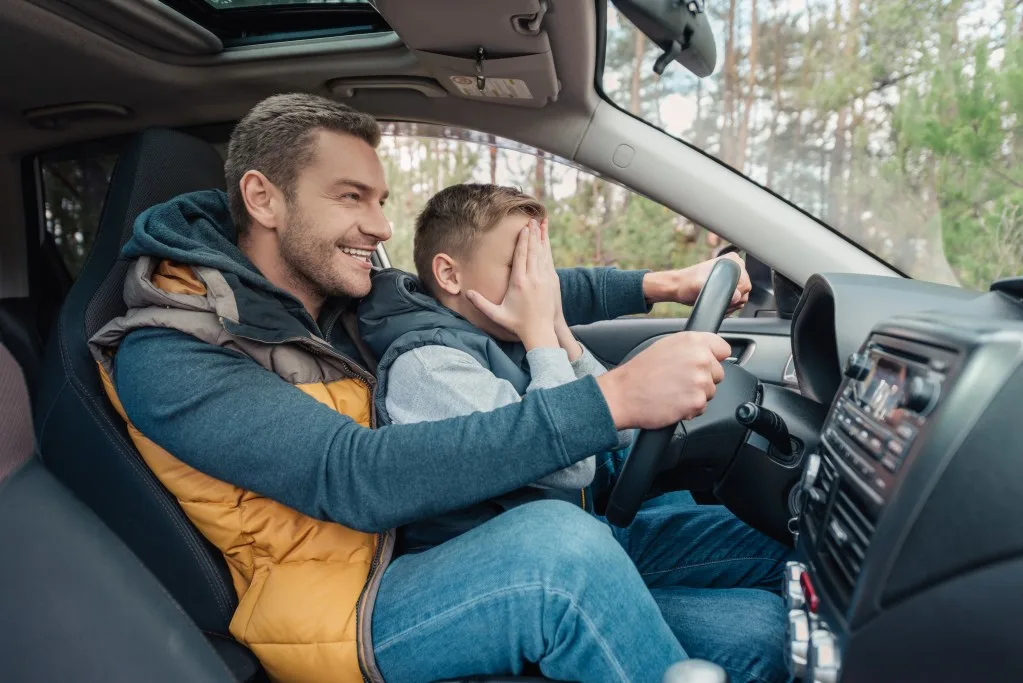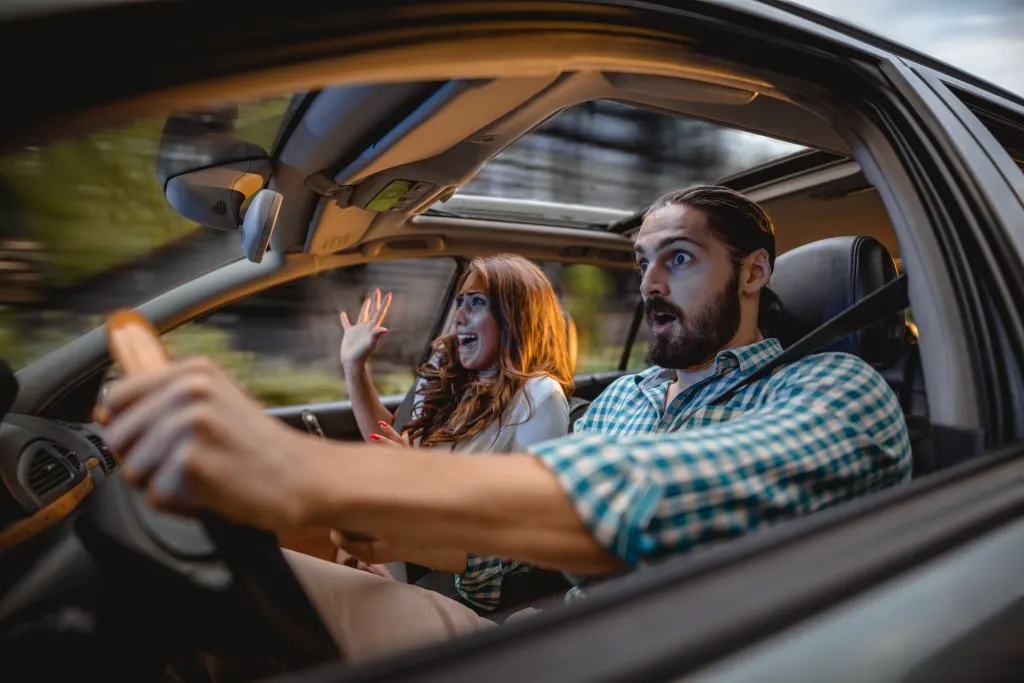Did you know there are places you can drive in the USA without a license?
Many know that a license gives you the right to drive on public roads. But other places exist where you can legally operate a car or other vehicle without one.
And to understand if they’re even constitutional is confusing.
Keep in mind: We’re not lawyers and are not providing legal advice. The video below was, however, created by a law firm.
Let’s dive in and figure this out!
Are Drivers Licenses Really Constitutional in the USA?
The question of whether driver’s licenses are constitutional touches on the broader topic of how powers and rights are distributed and understood within the U.S. Constitution.
The constitutionality of driver’s licenses is not directly addressed in the U.S. Constitution, but here are some points that have been considered in this context:
The Tenth Amendment:
The U.S. Constitution does not enumerate or expressly grant the federal government the authority to regulate standard modes of transportation or require licensing.
As such, under the Tenth Amendment, which states, “The powers not delegated to the United States by the Constitution, nor prohibited by it to the States, are reserved to the States respectively, or to the people,” this authority generally falls to the states.
So, each state has the power to set its own regulations for roads and drivers, including the requirement for a driver’s license.
Police Power:
States have what’s known as “police power” — the inherent authority to regulate in order to protect public health, safety, and welfare.
The licensing system can be seen as an exercise of this power because it ensures that drivers have minimum competence and knowledge, thereby promoting road safety.
Privilege vs. Right:
Driving on public roads is generally considered a privilege, not an absolute right. This distinction allows states to set conditions on this privilege, including obtaining a driver’s license.
However, some people argue that travel is a fundamental right, and while this is true in the sense of free movement, it doesn’t automatically translate to an unrestricted right to operate a motor vehicle on public roads without meeting certain criteria.
Challenges Over Time:
Over the years, some individuals have challenged the requirement for driver’s licenses, often claiming that they have an inherent right to use public roads without state interference. However, U.S. courts have largely upheld the states’ power to require driver’s licenses and regulate road safety.
Interstate Commerce:
While states regulate driver’s licenses, there are federal standards and regulations, especially when it involves interstate commerce. The Commercial Motor Vehicle Safety Act of 1986, for example, set minimum standards for commercial driver’s licenses (CDL) to ensure the safety of interstate trucking and busing.
In summary, driver’s licenses, as they are administered and regulated by the individual states, are generally considered constitutional under the U.S. legal framework. The system is viewed as a reasonable means of ensuring the safety and well-being of the public on roads and highways.
Where Must I Have a Valid Driver License?
Essentially, you need a valid driver license to operate a vehicle on any public road.
Each state issues its own licenses, which give you the legal right to drive on public streets. These include all publicly accessible roads maintained by local, state, or federal governments. On these roadways, in all 50 states, you must have a valid license to avoid fines and possible jail time.
However, in most cases, you don’t need a license to drive on private roads such as driveways or roads on a farm or ranch.
You may think some situations would excuse you from having a valid license on you while operating a vehicle. However, we discovered that’s not usually the case and will discuss those later.
Can I Go To Jail For Driving Without a License?
If caught driving without a license, you could go to jail on your first offense in some states.
Arizona and Nebraska take the situation more seriously. Operating a car without a driver license in Arizona could mean four months in jail and a $750 fine, plus a possible two-year probation and community service. Nebraska takes your license away for a year on your first offense.
You’ll go to jail for at least four days in New Mexico. In Vermont, you can spend up to two years in prison on your first offense. However, states like Wyoming, New Jersey, and Texas only charge a fine for your first offense. For example, right next door in Maine, you only receive a fine.
Pro Tip: Before you head out on the highway looking for adventures, make sure you know these 10 Unwritten Rules for Highway Driving.

Where Can I Legally Drive Without a Driver License?
Private property and private roads are two examples where you don’t need a driver license. However, places you can drive legally without a license. See more exceptions below and also where you can have some fun.
Private Farmland
Most farmland isn’t managed or maintained by the state and is considered private property.
This means you can drive farm equipment without a license on private farmland. Remember, though, that most vehicles still need to be properly registered with your state.
In certain instances where you can drive outside of farmland in a “covered farm vehicle” (CFV) legally without a commercial driver license (CDL).
Dirt Bike Trails and Racetracks
Dirt bikes aren’t street-legal, so you don’t need a license to drive them in most states. But states do have age requirements, so please check local laws before hitting the trails.
Dirtrider.com shares that “in most states, there are different laws for ATVs—three- and four-wheelers—with regard to all these things, especially rider age and safety certifications.”
Remember, if you ride trails with a dual-sport motorcycle, you still need a license to drive it on the street.
Racetracks have different sets of rules depending if they’re on private or public land. Plan on hitting the track? Bring your license. Most racetracks require it, but at least you can’t get pulled over for speeding.
Off-Highway Vehicle Areas
The USA has many designated off-highway vehicle (OHV) areas for you to use and enjoy. Bureau of Land Management (BLM) and forest service lands are two examples.
The federal government has no regulations or age limits for OHV riding, but states have individual laws. For example, in Colorado, 10 to 16-year-olds can drive an OHV. However, they must be under the immediate supervision of a person with a valid driver license.
Make sure to look up any other rules regarding vehicle registration and passes or entry fees to consider for your OHV.

Are There Exceptions to Driving Without a License On Public Roads?
There aren’t any exceptions to driving on public roads without a license. However, if you forget your license at home, you may only receive a warning. To avoid the hassle, we suggest always carrying it.
It’s illegal to drive without a license, even during an emergency. Police may choose not to prosecute depending on the circumstances, but we suggest calling 911 for emergency issues.
Golf cars (or carts, as many call them) aren’t usually street-legal, and many states allow people to operate them without a license off public roads or in bike lanes. However, in states such as Arizona, California, and Texas, the law may require you to make your golf car street-legal and maintain a valid license, depending on where you’re driving it.
Again, check your state laws for registration rules and age restrictions.
Can I Drive a Moped or Electric Scooter Without a License?
Be aware people use the words moped and scooter interchangeably. The best way to understand whether you can drive one of these without a license is to know the size of the engine. The size is called cubic capacity, commonly known as the “cc” of the bike.
If a scooter or moped has an engine over 50cc, most states require you to have a license and possibly a motorcycle endorsement for any street bike over 150cc.
We’ve said it a lot, but the laws do vary from state to state. If your two-wheeler has a 50cc engine, some states, such as California, require a permit or license. Others just have age requirements.
Many states require the rider to be 14-16 years old, but you can drive a 50cc at ten years old in Arkansas, whereas you must be 16 in North Carolina.
Pro Tip: Avoid doing any of these 5 RV Driving Habits That Make People Instantly Dislike You.
Is Driving on Public Roads Without a License Worth It?
Although there are exceptions based on location and vehicle, the risk outweighs the reward if you drive without a license. Public roads are more common than not in the USA, and eventually, you’ll probably need to drive on one.
As always, check your local state law before operating any motor vehicle, and please drive with a valid license.
Discover the Best Free Camping Across the USA
To be honest with you, we hate paying for camping. There are so many free campsites in America (with complete privacy).
You should give it a try!
As a matter of fact, these free campsites are yours. Every time you pay federal taxes, you’re contributing to these lands.
Become a FREE CAMPING INSIDER and join the 100,000 campers who love to score the best site!
We’ll send you the 50 Best Free Campsites in the USA (one per state). Access the list by submitting your email below: